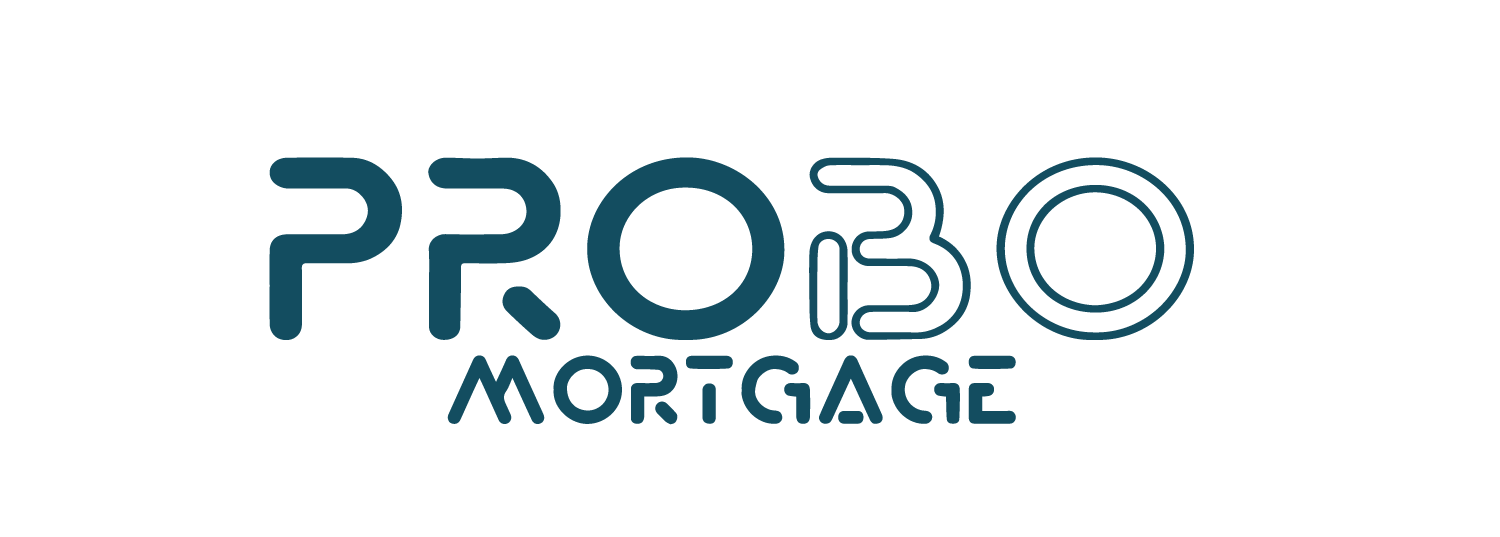Dubai, known for its stunning skyline and luxurious lifestyle, has become a hotspot for investors from around the globe. But what if you’re not a resident yet still dream of owning property in this vibrant city? Enter the world of Dubai mortgages for non-residents—a pathway that opens doors to one of the most lucrative real estate markets in the Middle East. Securing a Dubai mortgage for non residents might sound daunting, but it’s easier than you think. Understanding how these loans work can empower you to make informed decisions about your investment. With favourable terms and various options available, let’s explore how you can unlock your future in Dubai’s thriving property scene!
– Explanation of what a mortgage is and why it’s important for non-residents in Dubai
A mortgage is a loan specifically designed for purchasing real estate. It allows buyers to secure financing while using the property as collateral. For non-residents in Dubai, obtaining a Dubai mortgage for non residents can unlock valuable opportunities in one of the world’s most dynamic real estate markets. The importance of a mortgage extends beyond mere ownership—non-residents often seek investment options that offer strong returns and long-term growth potential.
As the demand for mortgages in Dubai continues to grow, a well-structured Dubai mortgage for non residents enables international buyers to enter the market without needing substantial upfront capital. It also enhances financial flexibility and grants access to improved living conditions or even luxurious holiday homes. With Dubai’s rapid development, strategic location, and tax-friendly policies, property ownership becomes an attractive option for overseas investors aiming to diversify their portfolios while enjoying the many advantages of investing in Dubai’s vibrant real estate sector.
Eligibility Criteria for Non Residents
Securing a Dubai mortgage for non residents comes with specific eligibility criteria. Understanding these requirements is essential for a smooth application process. First and foremost, lenders typically look for proof of income. A steady salary or substantial savings can significantly boost your chances, especially if paired with an established career. Your credit score also plays a crucial role in determining eligibility. Lenders want to see that you’ve managed debt responsibly in the past, as this helps them assess your ability to repay the loan.
Job stability is another important factor—potential borrowers should demonstrate a consistent employment history, ideally within the same industry for several years. To successfully apply for a Dubai mortgage for non residents, be ready to provide supporting documentation such as bank statements, proof of income, and possibly references from previous landlords. Being fully prepared can streamline your journey toward owning property in Dubai’s vibrant and competitive real estate market.
– Requirements for eligibility, such as income, credit score, and job stability
When considering a Dubai mortgage for non residents, understanding the eligibility requirements is crucial. Lenders typically assess your income to ensure you can comfortably meet mortgage repayments. A stable and verifiable source of income significantly strengthens your application. Your credit score also plays an important role in the approval process, as banks usually prefer applicants with a solid credit history. A minimum score is often required to demonstrate reliability in managing debt.
Job stability is another key factor. Lenders look favorably on individuals employed by reputable organizations or those who have successfully established their businesses abroad. Consistent employment indicates financial security and reduces perceived risk. To improve your chances of securing a Dubai mortgage for non residents, make sure you have all necessary documentation ready—such as proof of income, credit reports, and identification—so the application process proceeds as smoothly and efficiently as possible.

Types of Mortgages Available in Dubai
When exploring a Dubai mortgage for non residents, it’s essential to understand the different types available. Two primary categories stand out: fixed-rate and variable-rate mortgages. Fixed-rate mortgages offer stability, with the interest rate remaining constant throughout the loan term—ideal for those who prefer predictable monthly payments and consistent budgeting. In contrast, variable-rate mortgages come with fluctuating interest rates based on market conditions. While they often start lower than fixed rates, there’s a risk of rising payments over time.
Working with a mortgage broker Dubai can help you navigate these options and choose what best suits your financial goals. Another key consideration for those seeking a Dubai mortgage for non residents is the choice between conventional and Islamic mortgages. Islamic finance follows Sharia principles, avoiding traditional interest and instead offering profit-sharing models or leasing structures. These ethical alternatives are increasingly popular among investors seeking compliance with Islamic values while capitalizing on opportunities in Dubai’s dynamic real estate market.
Benefits of Securing a Mortgage as a Non Resident
Securing a Dubai mortgage for non residents opens doors to opportunities that may otherwise seem out of reach. One significant benefit is the chance to build equity in one of the world’s most dynamic real estate markets. Investing in property here can offer substantial returns over time, especially given Dubai’s consistent growth and development. As you pay down your mortgage, you’re not just making monthly payments; you’re gradually increasing your ownership stake.
Additionally, there can be potential tax advantages associated with owning property abroad. Depending on your home country’s tax treaties with the UAE, you might find ways to optimize your financial situation through deductions or credits related to foreign investments. A Dubai mortgage for non residents also means holding a physical asset in a stable and prestigious market, providing more security than fluctuating rental scenarios. This long-term strategy combines financial growth with the lifestyle and global appeal Dubai offers.
– Building equity in a stable real estate market
Investing in Dubai’s real estate market allows non-residents to build equity over time. As property values appreciate, your investment grows significantly. Equity is the difference between what you owe on a mortgage and your property’s current market value. With a stable economy like Dubai’s, this gap can widen, boosting your financial standing. As demand for properties increases, so does potential rental income. This additional cash flow can further enhance your equity position.
Securing a Dubai mortgage for non residents is a smart way to enter this growing market and start building long-term wealth. Moreover, owning property in an iconic city like Dubai adds prestige to your portfolio. It signals stability and growth potential to future investors or lenders. In essence, a Dubai mortgage for non residents isn’t just about homeownership; it’s a strategic move toward capitalizing on lasting financial opportunities in a thriving global marketplace.
– Potential tax advantages
Investing in real estate can offer significant financial benefits, especially for non-residents in Dubai. One of the most appealing advantages is the potential for tax efficiency. Dubai boasts a tax-friendly environment with no property taxes or capital gains taxes on residential properties. This means that any profits you make from your investment remain largely untaxed, enhancing your overall return. Additionally, mortgage interest payments can often be deducted from taxable income in various jurisdictions.
While this typically applies to residents, it’s worth exploring how international tax treaties may benefit you as a non-resident investor. By leveraging these advantages, securing a Dubai mortgage for non residents could significantly enhance your investment strategy while minimizing costs associated with property ownership. Whether you’re seeking rental income or long-term capital appreciation, a Dubai mortgage for non residents provides an effective path toward greater financial flexibility in a dynamic and growing market like Dubai.

How to Secure a Mortgage as a Non Resident
Securing a Dubai mortgage for non residents can seem daunting, but it’s manageable with the right approach. Start by researching lenders who specialize in loans for expatriates, as many institutions offer tailored solutions for international clients. Each lender may have different terms and conditions, so it’s important to compare them carefully. Consulting a mortgage consultant Dubai can simplify this step, helping you understand your best options based on your financial profile. Next, gather essential documents like your passport, proof of income, bank statements, and credit history.
These will demonstrate your financial stability to potential lenders. Once everything is ready, please submit your application through the lender’s platform or directly at their branch. Be prepared for a thorough assessment of your financial situation. After submitting your application, expect some waiting time while the lender evaluates it. During this process, they might request additional documentation or clarification. Maintaining clear communication with your lender is key to staying informed and addressing any issues quickly. With the right preparation, securing a Dubai mortgage for non residents becomes a smooth and achievable process.
– Step-by-step guide on the application process
Navigating the Dubai mortgage for non residents application process can seem daunting, but it doesn’t have to be. Start by researching lenders that cater specifically to non-residents in Dubai—this will save you time and effort. Once you’ve identified potential lenders, gather your financial documents, which typically include proof of income, bank statements, and identification papers—having these ready streamlines the application. Next, fill out the mortgage application form provided by your chosen lender.
Be thorough; incomplete applications can lead to delays. After submitting your application, expect a request for additional documentation or verification of information. Stay responsive during this step. Finally, once approved, review the loan terms carefully before signing anything. Understanding every detail is crucial when applying for a Dubai mortgage for non residents to avoid surprises later in your homeownership journey.
– Documents needed and how to obtain them as a non resident
When applying for a Dubai mortgage for non residents, gathering the right documents is crucial. Start with your passport and visa, which verify your identity and residency status. Next, you’ll need proof of income—this can include salary slips or bank statements from your employer. If you’re self-employed, tax returns are essential. A credit report will also be necessary to assess your financial history, and it’s wise to obtain this before applying to resolve any discrepancies early on.
Additionally, banks may request employment verification letters or contracts that highlight job stability. Having these documents ready can significantly streamline the application process. Lastly, consider obtaining an NOC (No Objection Certificate) if required by local regulations or specific lenders in Dubai. Being organized with these documents not only expedites approval for a Dubai mortgage for non residents but also shows professionalism to potential lenders.
Our Expert Guidance and Support
Securing a mortgage in Dubai as a non-resident can seem overwhelming, but with Probo Mortgage by your side, you’re in safe hands. Our expert advisors have in-depth knowledge of the Dubai property market and are here to guide you at every stage. We understand that financial situations vary, which is why we offer personalized advice tailored to your needs. After reviewing your profile, we’ll help you choose the best mortgage option from our network of reputable Dubai banks offering competitive rates. One of the biggest hurdles for non-residents is meeting bank eligibility criteria.
That’s why our team specializes in securing a Dubai mortgage for non-residents, helping you navigate requirements like credit scores and income verification with confidence. We ensure all documentation is accurate and timely to avoid delays or rejections. Our support continues beyond approval—we coordinate with agents, lawyers, and developers to ensure a seamless process. We also keep you informed about market trends and regulatory changes so you can make well-informed decisions. At Probo Mortgage, we’re committed to delivering exceptional service and making your mortgage journey in Dubai smooth, clear, and stress-free.
Conclusion
Securing a hassle-free Dubai mortgage for non residents may seem challenging at first, but with the right approach and expert support, it becomes much more manageable. By understanding the local regulations, preparing the necessary documents in advance, and working with experienced mortgage professionals, you can simplify the entire process. Whether you’re buying a holiday home, investing in property, or relocating, the right guidance can make all the difference. At Probo Mortgage, we’re here to walk you through every step, making your journey toward owning property in Dubai smooth, secure, and stress-free.
FAQs
1. Can non-residents get a mortgage in Dubai?
Yes, non-residents can get a mortgage in Dubai. Several banks offer home loan options for foreign investors, though eligibility criteria and down payment requirements may vary.
2. What documents are needed for a Dubai mortgage as a non-resident?
You’ll usually need your passport, proof of income, bank statements (3–6 months), and a credit report from your home country. Some lenders may ask for additional documents.
3. Should I work with a mortgage broker in Dubai?
Absolutely. A trusted mortgage broker can simplify the process, compare offers, handle paperwork, and secure better deals tailored to non-residents.
4. Can I repay my Dubai mortgage early without penalties?
Most banks allow early settlement but charge a penalty, usually around 1% of the outstanding loan amount, so it’s best to check the terms beforehand.






